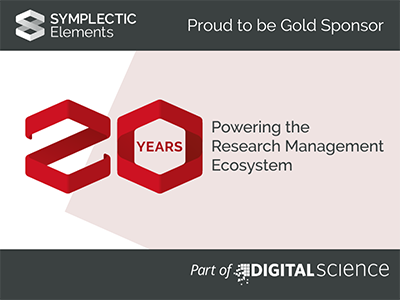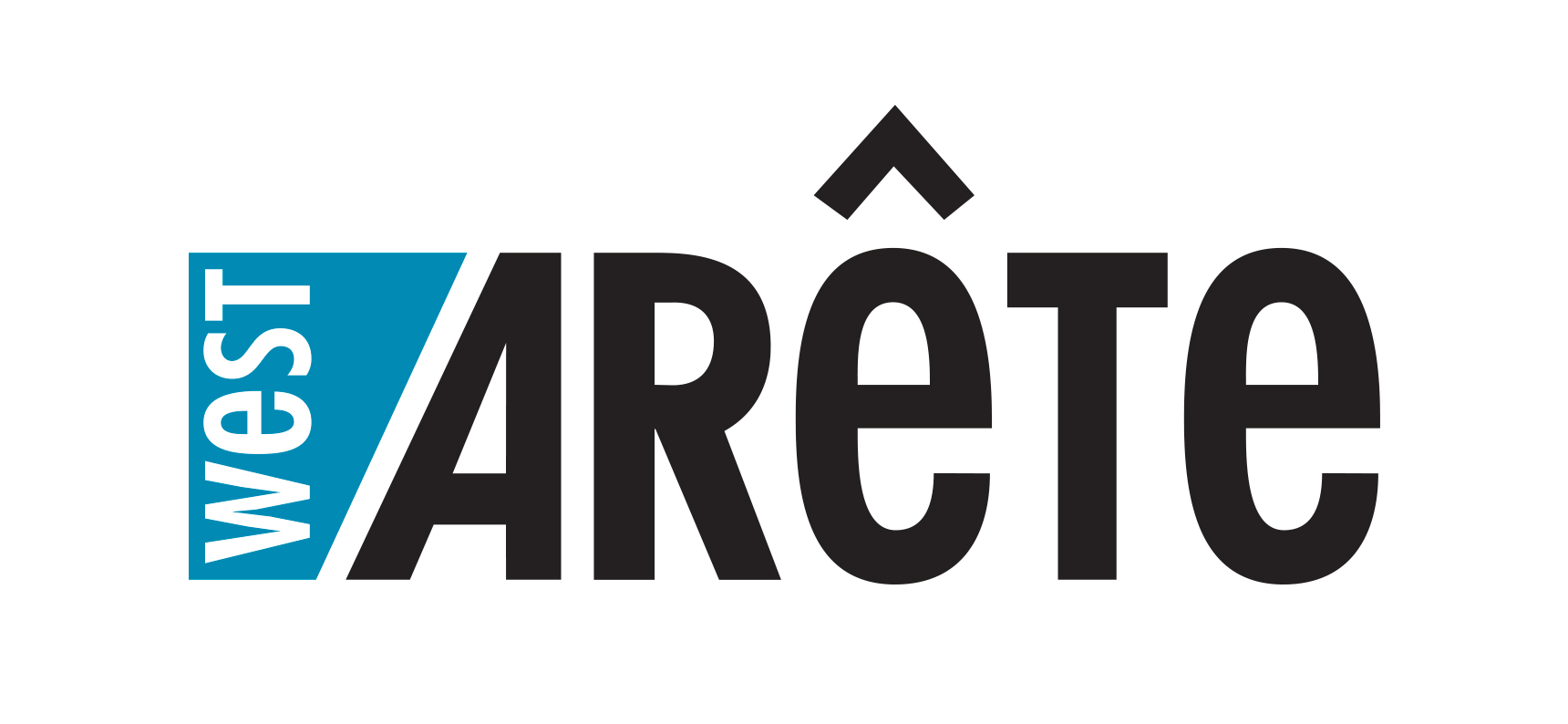Coral Gables Miami, FL

Coral Gables Miami, FL
Connecting the Dots
April 5-6, 2023
Coral Gables Miami, FL
2023 keynote speakers
Baron Wolf
Assistant Vice President for Research & Director of Research Analytics
University of Kentucky
7:30 - 8:30 am Wednesday, April 5 Breakfast, Check In, On-site Registration |
||
8:30 - 9:00 am Wednesday, April 5 Welcome and Opening Activities |
||
|
9:00 - 9:40 am Wednesday, April 5 Keynote: Connecting the Dots through Career Learning, Active Engagement, and Building a Thriving Research Enterprise...A Journey Anyone Can Take! 
Baron Wolf
|
||
|
9:40 - 9:50 am Wednesday, April 5 Meet Our Gold Sponsor—Elsevier 
Patrick Crisfulla
|
||
|
9:55 - 10:25 am Wednesday, April 5 Implementing a Unified Faculty Activity Reporting System at Virginia Tech 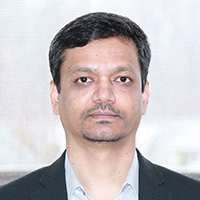
Abhay Joshi 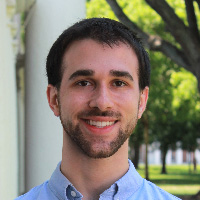
Ben Greenawald This presentation details Virginia Tech's journey in implementing a university-wide faculty activity reporting system. We will discuss the reporting needs of the institution, including the necessity to pull a variety of faculty activities datasets such as proposals, professional development, student evaluations, etc., spread across the different departments within the university. We will also discuss the limitations of the reporting system that came with our commercial faculty activity tracking system, which motivated us to implement our own external reporting solution. Finally, we dive into the technical details of our reporting application, talk about data governance, and address the successes achieved and challenges we faced along the way. Moderator: Nicole Gampe, Penn State University Libraries |
||
|
10:25 - 10:30 am Wednesday, April 5 Meet Our Silver Sponsor—Prophy Science 
Oleg Ruchayskiy
|
||
|
10:30 - 10:55 am Wednesday, April 5 Break |
||
|
10:55 - 11:25 am Wednesday, April 5 .net, .com, .edu - Connecting the Dots to Recycle and Reuse Scholarly Data within CU Boulder's (de-facto) RIM System 
Don Elsborg The University of Colorado at Boulder uses the VIVO open-source software suite to showcase scholarship. CU Experts (experts.colorado.edu) currently has 3255 people and over 120K publications representing works from the entire campus. Along with being a profile system, the underlying infrastructure also delivers data to various stakeholders across the campus for analytics, reporting, and custom branded department profiles. This presentation will outline the evolution of the system and sources and types of data in the system, along with workflows, our stakeholder community of practice, and, finally, current challenges and future plans for the system. Moderator: Sandy DeGroote, University of Illinois Chicago |
||
|
11:30 am - 12:15 pm Wednesday, April 5 It Takes a Village: Equitable Collection and Reflection of Scholarship in Faculty Information and Expert Finder Systems 
Christina Leigh Docteur 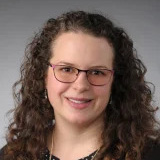
Emily Hart 
Melissa Lowry 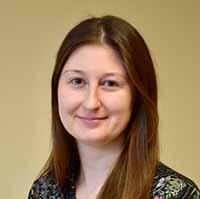
Victoria Weber Syracuse University has discovered that it takes a village to build inclusive and interoperable mechanisms for the capture and reflection of traditional scholarship and creative activities of our faculty. Prior to our integration of a new faculty information system, numerous units were working separately to achieve a common goal: comprehensive and equitable collection and reflection of faculty activities across the entire university—especially in the areas of humanities, visual and performing arts, social sciences, and professional studies, where scholarly products and activities often do not fit existing profile or activity reporting templates. However, each unit understood that having a close-to comprehensive picture of creative, scholarly, and research activities in one place could foster greater visibility, increased collaboration, more accurate institutional reporting, and subsequent strategic action. Now, the Office of Institutional Effectiveness in Academic Affairs, the Research Impacts Team at Syracuse University Libraries, and the Office of Research have banded together to forge a path toward optimal systems interconnectedness, reflective of our entire institutional population, with an added emphasis on reducing duplication of data entry (faculty activities) across these systems. The success of this project is largely tied to social interoperability and the ability of the individuals in our groups to leverage our combined networks of cross-campus connections to improve the data collection methods within the Faculty Portfolio System (powered by Watermark's Faculty Success) and tie these efforts to ongoing improvements with Experts@Syracuse (powered by Pure). For this panel session, our team of cross-campus partners will discuss our efforts and share examples of how we have leveraged our connections and individual operations to move towards developing systems that are more equitable and inclusive of all faculty in all disciplines. Moderator: Patrick Crisfulla, Elsevier |
||
|
12:15 - 1:15 pm Wednesday, April 5 Lunch |
||
|
1:15 - 2:15 pm Wednesday, April 5 Connecting the Dots for FAIRness and Impact with ORCID (and Other Persistent Identifiers) 
Paolo Gujilde 
Zach Chandler 
Clarke Iakovakis 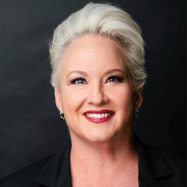
Lori Schultz 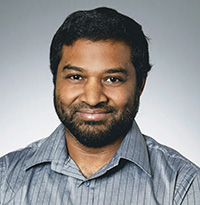
Iqbal Hossain ORCID, DOIs, and other persistent identifiers (PIDs) serve as open research infrastructure that can be used in any research and/or faculty Information system to help "connect the dots" between organizations and their affiliated researchers, research outputs, and activities, making it easier to assess impact. When used by all stakeholders, PIDs can make research, and information about researchers, more FAIR: Findable, Accessible, Interoperable, and Reusable. In the United States, the ORCID US Community consortium (administered by LYRASIS) sustains a community of practice for 180+ non-profit ORCID member organizations in the U.S. with a goal of embedding ORCID in multiple platforms and workflows across the research and scholarly communication ecosystem. This panel will provide an overview of ORCID trends and best practices in the U.S., with a focus on case studies from three ORCID US Community member organizations that are actively using ORCID in their expert finder systems. We will hear case studies from Stanford University, where their custom-built Stanford Profiles application uses ORCID to uniquely identify researchers and streamline population of researcher profile information; Oklahoma State University, where they are leveraging the ORCID integration in Symplectic Elements to assert employment and works information to researchers' ORCID records and importing information from ORCID records to reduce administrative burden for keeping local records up to date; and the University of Arizona, where ORCID serves as a data source for populating their custom Knowledge Map (KMap), which collects, connects, extracts, analyzes, and visualizes researcher expertise across the university. Each panelist will also speak about how their institution is planning to leverage ORCID to meet upcoming U.S. federal requirements around research security and data management and sharing. Moderator: Dave Scherer, Elsevier |
||
|
2:15 - 2:20 pm Wednesday, April 5 Meet Our Silver Sponsor—Clarivate 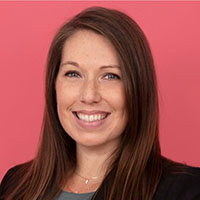
Sara Branch
|
||
|
2:30 - 3:00 pm Wednesday, April 5 Supporting and Informing Users: Developing User Information Portals and Training Resources 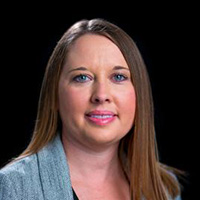
Stephanie Thompson 
Dave Scherer 
Irina Bischof A common use case for RIM operations is for personal users to have access to their own profiles. This allows the user to act on their own to add, edit, and revise the information and content associated with them in their Pure instance. While users have the best grasp of their own research outputs, activities, and personal information, adding the variety and complexity of information to their profiles can seem like a daunting task. As the flexibility of the Pure system increases, ensuring all the Pure Portal pages follow the same style becomes more challenging. To ensure that users know how to interact with their profiles, complete the variety of tasks to populate one's profile, and reach the local Pure administrators, customers can develop and manage personalized user information portals. These information portals support the sharing of customized information, guides, and tutorials to assist users. These information portals can also serve as a landing page for users to easily find and locate their Pure Portal profiles and the steps to access their profile's backend access point. This presentation will discuss the development of customer information portals and their benefits. Examples of the types of information contained on customer support portals, as well as current customer examples, will also be showcased. Moderator: Besiki Stvilia, Florida State University |
||
|
3:00 - 3:05 pm Wednesday, April 5 Meet Our Silver Sponsor—Overton 
Mirage Berry
|
||
|
3:05 - 3:30 pm Wednesday, April 5 Break |
||
|
3:30 - 4:00 pm Wednesday, April 5 GradWorld FSU Interactive Video Archive 
Mark Riley The presenters will describe the origins, vision, campus-wide collaboration, and global benefits of GradWorld FSU. GradWorld showcases the research and contributions of FSU graduate students, postdoctoral scholars, faculty, and alumni to the university and the world at large. GradWorld is an interactive mapping website and video archive of research profiles developed by the Graduate School in collaboration with University Communications, University Libraries, and the Center for Intensive English Studies. GradWorld has collected more than 250 profile videos representing over 30 countries and nearly 70 different degree programs. The GradWorld FSU portfolio continues to grow, and participants are realizing the professional benefits of creating a video for GradWorld FSU, as it gives them an opportunity to showcase their personality, research, skills, and passion to potential employers. Moderator: Rebecca Bryant, OCLC Research |
||
|
4:00 - 4:05 pm Wednesday, April 5 Meet Our Silver Sponsor—West Arete 
Scott Woods
|
||
|
4:05 - 5:00 pm Wednesday, April 5 A World Cafe Discussion on Relevant Topics |
||
|
5:00 - 7:00 pm Wednesday, April 5 Evening Reception and Poster Session: Sponsored by Elsevier |
||
|
7:30 - 8:30 am Thursday, April 6 Breakfast |
||
8:30 - 8:45 am Thursday, April 6 Welcome and Recap of Day 1 |
||
|
8:45 - 9:25 am Thursday, April 6 Keynote: Vision of Self, Serendipitous Collaborations, and Institutional Pride. 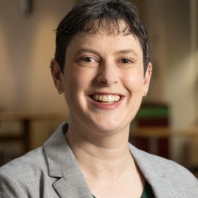
Karen Estlund |
||
|
9:25 - 9:35 am Thursday, April 6 Meet Our Gold Sponsor—4Science 
Federico Verlicchi
|
||
|
9:40 - 9:55 am Thursday, April 6 Strategies for Building Reporting and Data Visualization Services around RIMS and Expert Finder Systems 
Jason Glenn The implementation of Carnegie Mellon University's research information management system, Elements, along with the tightly coupled Expert Finder System, Scholars@CMU, positioned the CMU Libraries, the platform's product owner, at the center of the research enterprise at Carnegie Mellon. This move introduced the libraries to entirely new and demanding customers and partners. This presentation will outline the challenges of engaging campus business partners in a remarkably decentralized environment and will present strategies and tactics used by the libraries to facilitate a successful platform launch, system adoption, and the launch of affiliated reporting and data visualization services. This case study will examine strategies for managing stakeholder relationships throughout the RIMS ecosystem and identifying unmet data reporting needs across campus. Moderator: Colleen Williams, Houston Methodist |
||
|
9:55 - 10:10 am Thursday, April 6 RIM System Implementation & Management with a Small Team of Librarians: Challenges & Opportunities 
Clarke Iakovakis A small team of three Oklahoma State University librarians have led the implementation and administration of Experts Directory, a RIM System hosted by Symplectic Elements, beginning in late 2019. This presentation will focus on the unique service model we developed at OSU, where the librarians are the sole system administrators and have managed the entire process of configuring the external and internal data feeds with campus IT, HR, Grants, the Registrar, campus communications, university administration, and faculty members themselves. We will discuss our processes for building and managing these relationships during implementation and how the partnerships have evolved now that the project is stable and includes live public profiles for over 600 faculty members. Although procurement was finalized prior to the COVID-19 pandemic, much of the implementation took place afterwards, and the presentation will talk about how working remotely impacted system rollout. We will also address the benefits to the library of our leadership of the project, such as integrating with the institutional repository and giving us opportunity to build technical skills that transfer to other library projects. We will close with the challenges of RIM system administration with a small library team and offer some lessons learned and suggestions for other institutions working in this space. Moderator: Angela Clark, University of Miami |
||
|
10:10 - 10:40 am Thursday, April 6 Break |
||
|
10:40 am - 11:25 am Thursday, April 6 Information Management Principles and Practices You Need to Connect the Dots 
David W Driesbach 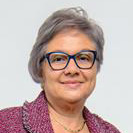
Yesim Darici 
Robert Gutierrez 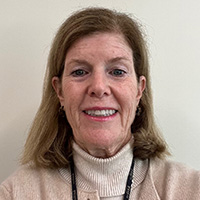
Maureen Pelham 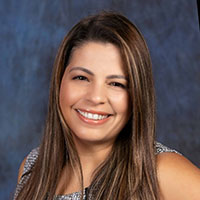
Abilene Pinzon Learn how Florida International University has used information management principles and practices to build an infrastructure that drives the connection of people, processes, and technologies within and beyond the university's diverse R1 scholarly community. With speakers from key leadership roles in the university's provost and research offices, the presentation will provide a diverse, but unifying, perspective on how information management has facilitated success across many initiatives. Some of the initiatives to be covered include research development strategy and execution, research compliance efforts with the upcoming federal initiatives like NSPM-33 and the CHIPS Act, and the implementation of new program initiatives aimed to enable faculty success across all disciplines and digital touchpoints. Moderator: Ann Beynon, Clarivate |
||
|
11:30 am - Noon Thursday, April 6 The Structure and Priorities of Researchers' Scholarly Profile Maintenance Activities: A Case of Institutional Research Information Management System 
Dong Joon Lee 
Besiki Stvilia Research information management systems (RIMS) have become critical components of information technology infrastructure on university campuses. They are used not just for sharing and promoting faculty research, but also for conducting faculty evaluation and development, facilitating research collaborations, and identifying mentors for student projects and expert consultants for local businesses. This study is one of the first empirical investigations of the structure of researchers' scholarly profile maintenance activities in a non-mandatory institutional RIMS. By analyzing the RIMS's log data, we identified 11 tasks researchers performed when updating their profiles. These tasks were further grouped into three activities: adding publication, enhancing researcher identity, and improving research discoverability. In addition, we found that junior researchers and female researchers were more engaged in maintaining their RIMS profiles than senior researchers and male researchers. The results provide insights for designing profile maintenance action templates for institutional RIMS that are tailored to researchers' characteristics and help enhance researchers' engagement in the curation of their research information. This also suggests that female and junior researchers can serve as early adopters of institutional RIMS. Moderator: Iqbal Hossain, University of Arizona |
||
|
12:00 - 1:00 pm Thursday, April 6 Lunch |
||
|
1:00 - 1:40 pm Thursday, April 6 Keynote: Building an Ecosystem of Innovation In Ohio and Beyond 
Jeff Agnoli |
||
|
1:40 - 1:50 pm Thursday, April 6 Meet Our Gold Sponsor—Symplectic, Part of Digital Science 
Nick Anderson
|
||
|
1:55 - 2:25 pm Thursday, April 6 University Expert Web Portal as a Sustainable Part of the State-wide Innovation Ecosystem 
Iryna V. Lendel This study aims to explore the value, growth, and sustainability of state-wide innovation initiatives using expert system web portals. The research focused on multi-university initiatives, preferably state-wide, connecting university resources to industries and companies to discover innovation initiatives' value propositions created for businesses. During interviews with the representatives of the expert innovation systems across the U.S., the research examined the usage and sustainability of the innovation initiatives and inquired about marketing strategies, staffing, data domains, and incentives to develop, use, and sustain the initiatives. As a result of this study, a set of lessons learned and suggested strategies will be presented to discuss. Moderator: Sheila Craft-Morgan, Ohio State University |
||
|
2:25 - 2:30 pm Thursday, April 6 Meet Our Silver Sponsor—Lyrasis 
Michele Mennielli
|
||
|
2:30 - 3:00 pm Thursday, April 6 Break |
||
|
3:00 - 4:00 pm Thursday, April 6 Focusing Discovery and Awareness: The Use of RIM Systems for Internal and External Research Communication Initiatives 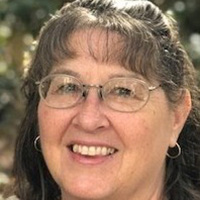
Bonnie Crotty Nelson 
Baron Wolf 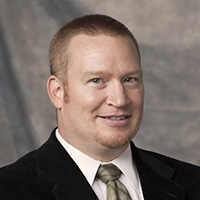
Mark Zulauf 
David Scherer A common use case of research information management systems is the ability to increase discovery and awareness of research output and other scholarly activities of faculty and researchers via the usage of a central portal. Beyond the provided means of indexing and showcasing people and outputs, institutions may want to use the RIM system to "connect the dots" to particular research communication initiatives or research campaigns within their organization via the content provided within their RIM portals. Whether through the increased awareness of internal strategic research goals (such as research health communities) or through broader research initiatives (such as Open Access Week or Breast Cancer Awareness Month), institutions want to be able to showcase and highlight the diversity and complexity of their organization's research focuses. This panel presentation will bring together several academic institutions and research institutes to highlight the use of the RIM system as a major driver for strategic research communication campaigns. Presenters will describe how their institutions have used their systems to showcase these initiatives and present potential opportunities for additional research communication practices and organizational stakeholders that can benefit from the RIM system and portal capabilities. Moderator: Washington Carvalho-Segundo, Brazilian Institute of Information in Science and Technology |
||
|
4:00 - 4:05 pm Thursday, April 6 Meet Our Silver Sponsor—Academic Analytics 
Stephanie Faulkner
|
||
|
4:05 - 5:00 pm Thursday, April 6 Closing |
||
A Smarter Approach to the Expert Finder System Profile Completeness-Quality-Cost Tradeoff
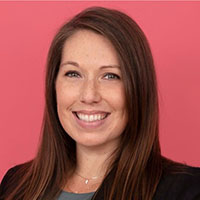
Sara Branch
Technical Solutions Consultant, Clarivate

Jeff Horon
Director of Research Information Solutions, Clarivate
The Esploro research information management solution optimizes data completeness, quality, and cost. Esploro repurposes existing data (e.g., from FAR systems), utilizes our Central Discovery Index (CDI) database to enhance metadata, and employs Smart Harvesting — a machine learning algorithm — to find additional publications in CDI on an ongoing basis. The data are then available in an open, accessible manner to serve many use cases at the institution, such as populating profiles and CVs, locating subject matter experts, indexing in Google Scholar, prepopulating annual review packets, reporting and analysis, and integrating into other systems through APIs and open standards.
Connecting the Dots in Research Development: How Florida State University Uses Expert Finder Systems to Advance Research and Creativity
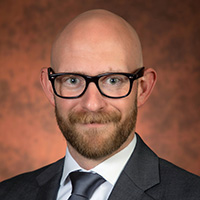
Mike Mitchell
Assistant Director for Research Strategy and Impact, Florida State University
This poster will provide a variety of examples of EFS use cases from Florida State University's Office of Research Development (ORD). ORD is charged with strengthening the competitiveness of FSU's researchers and primarily focuses on connecting individual faculty with funding opportunities, collaborators, resources, and outside partners. EFS are a key part of our toolbox because the fundamental knowledge of who is doing what is critical to connecting the right people to the right things.
Showcasing Experts
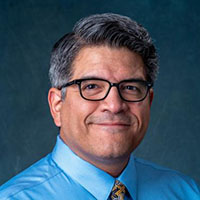
Alex Viggio
Director, Faculty Information System, University of Colorado Boulder
This poster will diagram and highlight the various ways that university faculty and researcher data from faculty reporting and RIM systems can be re-used to showcase these experts in numerous web and mobile forms.
Laguna - FAIR Research Data Infrastructure and Open Science Support Observatory

Washington Luís Ribeiro de Carvalho Segundo
Technical Coordinator of the Area of Treatment, Analysis and Dissemination of Scientific Information
Brazilian Institute of Information in Science and Technology
The planning and initial execution of the Laguna Project are described, whose premise is the creation of an open information infrastructure (OII), based on the development of certified data repositories and on the organizing principle of a Data Lake structure that connects to the Ocean of Scientific Object Information Data by systematizing and making available quality information. The infrastructure is designed with connection layers for processing the data collected from the "outside world," the so-called data repositories.
The main objective of the infrastructure is to make available and disseminate resources in multidisciplinary digital repositories of publications and research data, guided by FAIR — Findable, Accessible, Interoperable, and Reusable — principles, in addition to the construction of an Open Science Support Observatory, which will offer subsidies for a better evaluation of science, promoting Open Science practices in scientific research developed in Brazil.
In particular, the Observatory in Support of Open Science in Brazil will map and promote Open Science practices in the country. The goal of its implementation is the monitoring of Open Science practices developed in Brazil and in other countries, as well as the availability of tools that contribute to quantitative and qualitative analyses. It will present a collaborative structure, allowing the scientific community and the population, in general, to develop their academic and technical activities in an agile way, in internal and external cooperation networks, for the production and dissemination of research. Its working dynamics will involve technical/scientific monitoring, information production, dashboards, analysis, and technology development. These will be a model for regional Open Science infrastructures, as well as for international infrastructures in the area.
The project will apply advanced computational methods for the processing, organization, and analysis of information to obtain data sets that are FAIR. Thus, it covers the stages of selection; transformation, linking, and enrichment; organization and indexing; and retrieval and visualization.
A New Way to Access Researcher Data: The Web of Science Researcher API
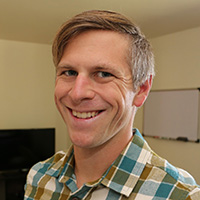
Benjamin Gross
API Product Manager, Clarivate
Web of Science Researcher Profiles were added to WoS in 2022. Evolving from Publons and ResearcherID, WoS Researcher Profiles allow users to track and highlight their research output right in the Web of Science, including publications, peer reviews, and editorial work. Additionally, profiles provide convenient access to personalized citation metrics. When claimed, profiles can be curated by the researchers themselves; prior to that, publication and affiliation information is collected automatically based on a clustering algorithm.
The new Researcher API provides access to this valuable data and an opportunity for institutions to leverage the data in a variety of ways. Potential use cases include seeding CRIS, FAR, and profiling systems with WoS data for an entire institution. Alternatively, the API can used to discover researchers doing work in a specific area using a topic-based search. The data feed includes publication and review history for each researcher, as well as basic metrics such as total times cited counts and h-index.
This poster will include an overview of Researcher Profiles, the API, and potential workflows using the API.
Sponsors and Exhibitors

Coral Gables Miami, FL
©2025 Florida State University, Florida ExpertNet · Privacy Policy
